#anaximander
Photo
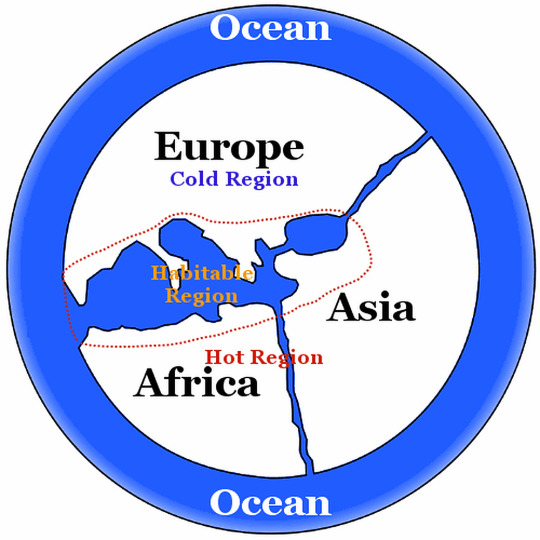
The map of the world according to Anaximander (610-546 BC). He is considered one of the founders of geography.
14K notes
·
View notes
Note
Did Europe got it's name from the ancient Greek myth Europa? Where Zeus fell in love with her disguised himself as a cow and then kidnapped her?
It did, although not so directly.
It was usual for Ancient Greeks to associate regions with a progenitor, who was a mythological figure, so as to explain the differences between different people and genealogies. While Europe was of Greek descent according to the myth, she was a princess of Phoenicia. Zeus kidnapped her and took her west to the island of Crete, where she became its queen and progenitor (she was the mother of King Minos). It’s interesting that the selection of Crete might indicate some kind of awareness Ancient Greeks had that Crete was one of the very first places in Europe / the West with advanced civilisation. In any case, in the Homeric epics the name Europe is used broadly for the land west of the Aegean Sea. That includes the Greek mainland and perhaps the Balkans and East Europe. However, as it is evident in the maps of Anaximander in the 6th century BC, the definition of Europe had expanded to include more of the western parts of the continent.

The potentially first map of the known world is attributed to Anaximander (6th century BC).
So, the knowledge on this map apparently was passed on to the Romans and most of the continent eventually. Therefore, Western Europeans most likely adopted the definition of the Greeks for the region and it’s not that they took it directly from the kidnapped mythological princess.
By the way it was also the Romans who changed the character’s name into Europa as in Greek it is the same with the continent’s name: Ευρώπη (Europe - Greek pronunciation is Evrópi) .
Setting the myth aside and trying to find a more down to earth approach, it is not yet certain why Greeks called Europe as such. Ευρώπη is a compound name from the adjective ευρύς (eurus or eurys, pronounced evrís) and the suffix -ώπη (-ope) which comes from the roots of the words for vision, eyes, looking (i.e compare with optics, ophthalmology, optometry etc). Historians and linguists are basically at a loss because they don’t yet understand why that name would be associated with the continent. Regarding the mythological princess, her name can mean that she had wide, large eyes or that her eyes were widely set on her face or that she had a wide face (as the Greek word for face has the same root, πρόσωπο - prósopo, literally meaning “frontal look”). That’s all well for her but why would the continent be called that? This is unclear and it is important because it’s mythology that explains real life, not the other way round. This is just my personal speculation but I believe the true name might have the meaning of “wide view”. In Greece, there are locations which have similar names, the most notable being Ancient Europos in Macedonia, Northern Greece. More locations had been named as such in colonies during the Hellenistic era, i.e there is one in Syria. If it was such a popular name for locations and towns, I believe the name described the settlement as having wide, expanding views and potentially good visibility against invaders. Or maybe that it was widely structured itself and expanded before the visitor’s eyes. The more I think of it, the more obvious it gets and it pains me that acclaimed scientists fight over why a continent has wide eyes or names itself after a woman raped by a horny god. It almost certainly has little to do with it in the grand scheme of things. The way Greece is a narrow peninsula, progressively widening towards its north and then the Balkans and Central Europe widening even more could possibly be the reason why anything from Greece’s viewpoint and farther north was called “wide looking”. Besides, if we judge from Anaximander’s map, it is obvious Greeks in the 6th century BC thought Europe was the largest continent as they had explored Africa (Libya) and Asia far less (they probably gave up in Sahara and the Middle East). Therefore in the Greeks’ perception, Europe indeed appeared like a wide, expanding land. By the Hellenistic era, where they had explored more and the knowledge was certainly far better, I assume the name had stuck anyway and did not change. I don’t know when exactly Europeans “officially” embraced the term but I believe the inspiration was historical (the ancient maps) and not mythological.


Ancient Europos. I suspect it is not coincidental at all that it is so flat with so wide openings to the horizon from all sides. This would be notable enough to be named after, as so flat and widely mountain-less areas are rare in the Greek terrain.
In conclusion, my speculation is that the myth somehow attempted to interpret the procession of advanced civilisation (or maybe just Greek presence) from East to West, and the flourishing of Greeks there like Europe eventually did with Zeus’ gifts and sons. Even if I am totally off, I still believe it makes more sense if the mythological connection was attempted after the name Europe was already used by at least a number of Greeks as a geographical term and not that Europeans read Europe’s story and were like “seems like the perfect name for our continent”. Again, mythology is the one observing and interpreting the already existing world.
#Europe#Greece#mythology#Greek mythology#zeus#ancient europos#Macedonia#kilkis#Crete#mainland#Greek islands#Greek history#anon#ask#anaximander
77 notes
·
View notes
Text
philosophy is so fucking funny, like you go all the way back to the ionian school of pre-socratic philosophy and its like everyone is out here changing up what they believe the world arises from.
Thales of Miletus believed all things are derived from water because of moistness.
Anaximenes believed everything is derived from air.
Heraclitus believed all things are derived from fire.
straight up just like switching out what came before.
(lmao i know it’s more complicated than that and they had solid reasoning, but it’s funnier to think about them just like being like “fuck you philosophy father!! the archae is this!!!”)
i love philosophy so much lmao.
#archae#philosophy#philosophy guy loves giraffes in my podcast#anaximander#Anaximenes#heraclitus#thales of miletus#socrates#pre-socratic#ionia#water womb
10 notes
·
View notes
Photo
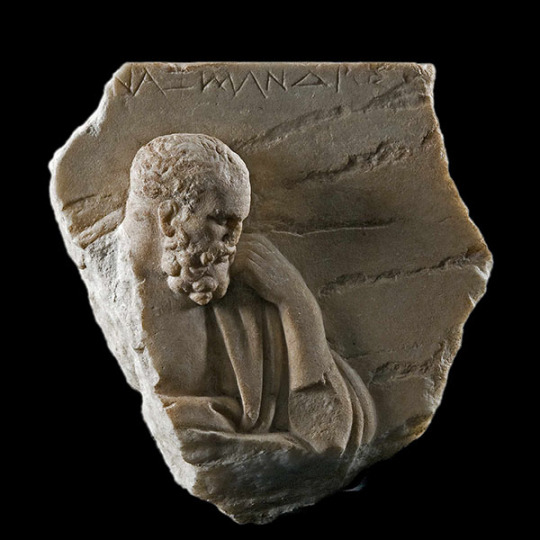
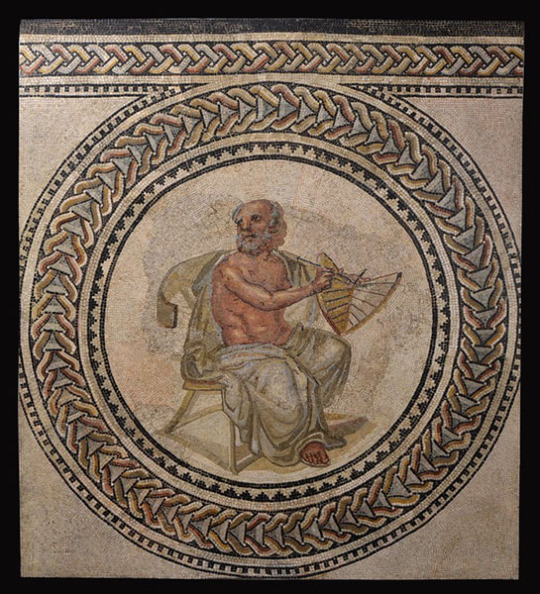
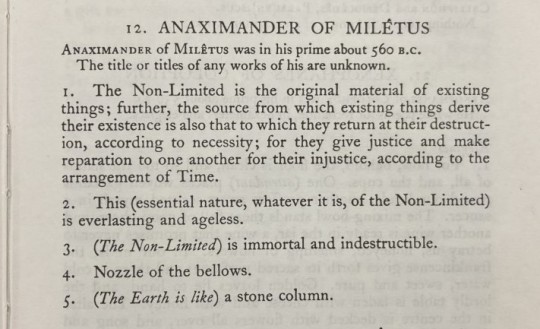
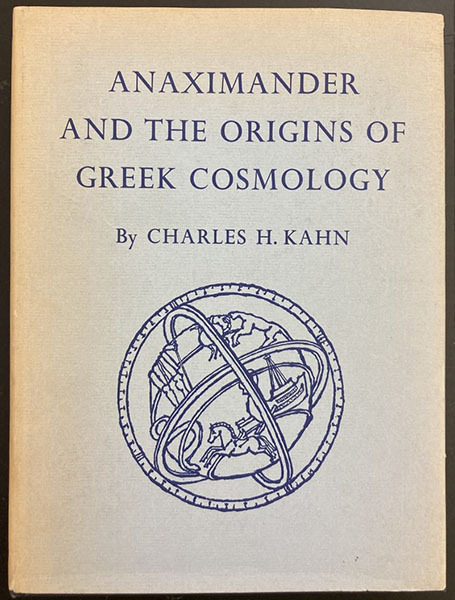
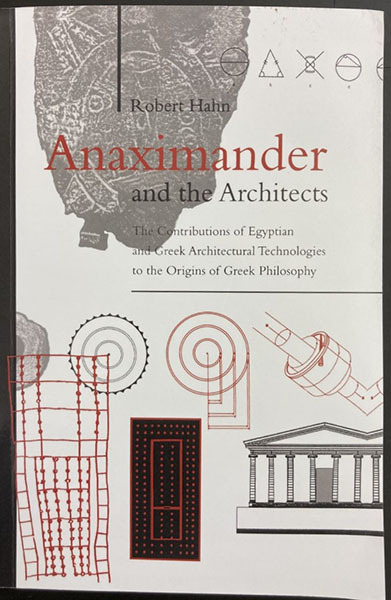
Anaximander of Miletus – Scientist of the Day
Anaximander of Miletus was a pre-Socratic philosopher who lived in Miletus in Ionia, a collection of Greek cities on the western coast of Asa Minor.
read more...
#Anaximander#Miletus#Ionia#pre-Socratic#histsci#histSTM#6th century BCE#history of science#Ashworth#Scientist of the Day
15 notes
·
View notes
Photo
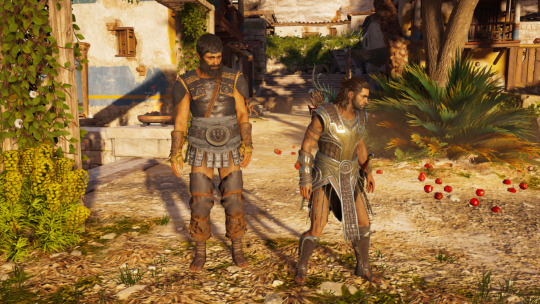
I just discovered another “giant” in Assassin’s Creed Odyssey: Anaximander, Xenia’s map maker, is as gigantesque as the pirate lady herself and her brother. There must be something in the water of Keos that makes them all so tall. It is interesting though that Alexios (or Kassandra) is able to carry Anaximander on his back to get him out of his prison in the fortress.
8 notes
·
View notes
Text
“The first principle of Anaximander's cosmogony is the Apeiron, and he is more likely to have chosen the word "boundless" to connote his principle's character as an unknown material substance, the "indefinite," than to indicate its character as an infinite or indeterminate expanse of material. Nevertheless, the Apeiron probably is infinite in extent, as it is infinite in time in its eternity (A15), and it lies beyond and encompasses the cosmos it gives rise to. Anaximander does not develop any form of creationism; instead, he stays within the biological model that informs the Hesiodic tradition, and which also plays a role in the theogonic side of Pherecydes' speculation. Only the testimonium of Ps.-Plutarch informs us of the coming-to-be of the cosmos in biological language: ... what arose from the eternal and is germinative of hot and cold was separated off at the birth of this cosmos, and a kind of sphere of flame from this grew around the air about the earth like bark around a tree. Strom. 2(A10) The passage makes much use of biological language, although one cannot be certain how much of it is Anaximander's. But the language is striking, and since the tradition of theogonic and theo-cosmogonic explanation is largely biological, as we find in Hesiod and Orphic verse, it is reasonable to honor the biological details of Ps.-Plutarch's report, based probably on Theophrastus', assomething close to the very words of Anaximander. What "separates off" from the "eternal," i.e. the Apeiron, is "germinative of hot and cold," and, since hot and cold do not actually exist until they blossom forth from the germ, this germ itself is neither hot nor cold, nor is the Apeiron, for that matter. These observations are in harmony with those testimonia that report that the Apeiron is "neither water nor any other of the things called elements" (A9), and these elemental materials are identified with the opposites themselves in this earliest period in cosmology.”
- The Theologian Pherecydes of Syros and the Early Days of Natural Philosophy by Herbert Granger
3 notes
·
View notes
Text

W. K. C. Guthrie, A History of Greek Philosophy I The earlier Presocratics and the Pythagoreans
#ordee was after all a beautiful thing ugh this word obssesses me kosmoskosmoskosmos#i mean order adornment and world all in these tiny six letters k o s m o s#im obssessed i really ooved this book even tho i may not pass my Philosophy subject (:/)#anyways#book quotes#greek philosophy#philosophy#anaximander#greek stuff#classics shit#classics#words#classical academia#cosmogonía.#cosmos#books#~just a sinner.
2 notes
·
View notes
Photo
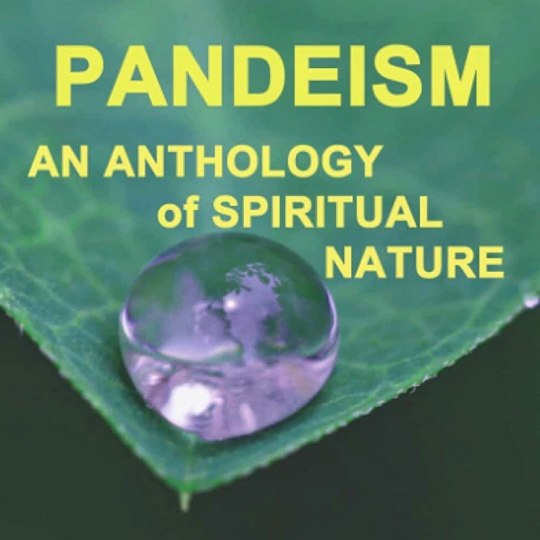
Pandeism: An Anthology of Spiritual Nature — now on sale at Amazon.com!! #Pandeism #Anthology #PandeismAnAnthology #PandeismAnAnthologyOfSpiritualNature #Spirituality #Spiritual #Nature #SpiritualNature #Deism #ArtificialIntelligence #BioPantheism #Taoism #Christianity #Cosmology #Anaximander #Occult #Tarot #PhilosophicalPessimism #Parapsychology #Theology #Philosophy #Faith #Belief #Poetry https://www.instagram.com/p/Cf0rHEpuAoM/?igshid=NGJjMDIxMWI=
#pandeism#anthology#pandeismananthology#pandeismananthologyofspiritualnature#spirituality#spiritual#nature#spiritualnature#deism#artificialintelligence#biopantheism#taoism#christianity#cosmology#anaximander#occult#tarot#philosophicalpessimism#parapsychology#theology#philosophy#faith#belief#poetry
3 notes
·
View notes
Text
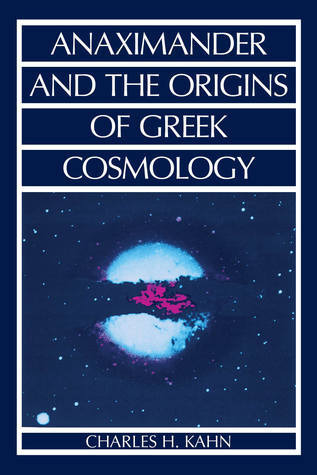
Charles H. Kahn Anaximander and the Origins of Greek Cosmology.
A classic on Anaximander and the early ancient Greek philosophy and cosmology!
1 note
·
View note
Text
The Presocratics: Anaximander
The philosophical influence of the ancient city of Miletus, that supported Thales, continued its inspiration for another philosopher who created new theories and speculations on the origin of the world and what it means for humans to be. The fragmentary remains of his philosophy inspired others to interpret him for centuries, including the likes of Friedrich Nietzsche and Martin Heidegger. The philosopher was Anaximander of Miletus.
The Agora
One of the possible reasons for Miletus being a political support for philosophical thinking is mentioned in my Thales review, and that was the freedom for speculative thought. Gérard Naddaf, in Anaximander in Context, describes how this development might have occurred. "The polis was a small, independent, and self-governing community in which all major activity, political, religious, and social, was concentrated in one specific point, the agora or public gathering place at the center of the city. Now what is at the origin of the agora? Even though it appears for the first time in the Greek colonies, its essence goes back to the old warriors’ assembly, which took place in a circle and where each man could speak freely on the condition that he entered the circle and placed himself at the center. It is this assembly of equals that was to become, after a series of economic and social transformations, the agora of the city where all of the citizens (although initially only the aristocracy) could debate and discuss, in common, the affairs of the community. In the final analysis, the agora is the circular and centered space that permitted all of the citizens to affirm themselves as, equals, and peers, and to enter with one another into a relation of identity, symmetry, and reciprocity. In sum, they form a united cosmos."
Myth vs. Investigation
Like his fellow citizen Thales of Miletus, Anaximander was part of this intellectual camp that emphasized investigation of nature over myth. The comfort of myth provides answers for child-like questions like "why are we here?" Myths can co-exist with investigation, and this is mainly due to their separate aims. Myth helps to create purpose in a human society. Investigation lets us explore cause and effect when we have trouble understanding our experience. At around 600 BC, the world is still a magical place, full of mystery. Things like hot and cold, wet and dry, movement and change, are curious and perplexing. For a few, myths appear stale, or provide no explanation for natural happenings. Measurement with mathematics is still the forefront of early philosophy, and with the fragmentary sources available for Anaximander, a philosophy of life can only be speculated.
Firsts
At this time, the Presocratics are venturing into new territory with possible influences from the past that we have no records for. Anaximander has only one fragment, and like with Thales, we have to piece together testimonies to fill out the rest. This is why attributing "firsts" can be problematic. "He may have been the first Greek to write in prose," invent the sundial, explain the "celestial sphere, and the map." With exposure to the Babylonians and the Egyptians, and with travel experiences by Anaximander himself, a lot of this knowledge may have been learned elsewhere and introduced, and reintroduced to ancient Greece. Crediting Anaximander for knowledge of animal behaviour during earthquakes, and in predicting one that helped the Spartans, could also have been knowledge that originated elsewhere.
In the records there is a clue to what Anaximander's map may have looked like, but nothing certain. It was Herodotus' mocking in his Histories of Hecataeus' map, who appeared generations later than Anaximander, that provides a possibility:
"I laugh when I consider that before now many have drawn maps of the world, but no one has set it out in a reasonable way. They draw [the river Ocean] flowing around the earth, which is round as if made by a compass, and they make Asia equal to Europe."
The Origin of the World
When Thales posited the myth-breaking theory of water being the material cause of the the world, it becomes the duty of later thinkers to continue the questioning process, and to not accept theories without question. Just as mysterious as it is today, the mystery of the ultimate cause of the universe continues. The difficulty then, as it is now, is how each philosopher is already created by this universe. It's not an option to go back to the beginning of the universe and still have a vantage point to what happened. The thinking has to work backwards to earlier causes based on what we see now. Errors are expected and no new theories are ever final.
One of the problems with Thales designating water as the material cause for the world is the natural question, "then what caused water?" Anaximander may have struggled with this problem. Any cause that gets labelled as a thing that causes other things can be questioned infinitely. "What thing caused this thing?" Yet any ancient philosopher can see that things do appear in our perceptions and there are some proximate causes we can notice, but all of it has to be explained without using a "thing" to avoid being trapped in endless questioning.
Boundless Nature
Like with Thales, Anaximander only has fragmentary evidence. These quotes are all argued endlessly by experts with always more scholarship adding new angles. A great summary of these theories comes from Dirk L. Couprie and Radim Kočandrle, in Anaximander's 'Boundless Nature'. With many interpreters finding it easy to recognize their current views of an infinite space in interpretations of Anaximander's ideas, Couprie and Kočandrle translate the roots of the words in the cultural beliefs of the time as nature. Yet it is not how we tend to see the word nature in our modern language. Instead it is more like a natural growth. A "hidden but active power." This power is an "inexhaustible", "universal power", that moves the heavens and grows plants and animals.
By replacing a thing, like water or earth, with a hidden power that shows itself in movement and change, but yet doesn't appear as a separate thing, Anaximander is able to move beyond Thales. A hidden power of course is not satisfying for those who need a substance, but it allows the philosopher to theorize further and connect other theories and speculations into a coherent source of natural power that includes everything we experience. It also includes an understanding of opposites. Instead of it being just a boundless force of growth, this movement creates a boundless variety which allows the opposites that we see, like hot and cold, wet and dry. If everything comes from water, then everything should be made from water. There would be no opposites.
From this theory Anaximander connects this to how life formed in the world. For him, "living beings emerge from a sort of primeval moisture or slime, which is activated by the heat of the sun after the initial formation of the universe. In sum, life results from the action of the hot and the dry on the cold and the wet...Censorius...says that the Milesian believed that humans initially were formed inside of fish or creatures resembling fish. When the human embryos reached puberty (and thus were capable of reproduction), the fishlike animals broke open and men and women who were capable of nourishing themselves emerged." What is interesting in this theory is how humans are connected to other animals, so it points the way to something that isn't quite evolution like from Darwin, but on the other hand it's not another myth of humans appearing fully formed from Gods.
A cleft between myth and natural explanation
The separation between myth and investigation continues after Thales with Anaximander. In Anaximander in Context Naddaf reminds us of the methods of religions when he says, "those who adhere to a literal interpretation of Genesis are thereby committed to accepting the representation of the origins of humanity and society as coeval, so that human beings come into existence within the context of a fully functioning society. Representing society as coming into being without a real past is the norm in mythical accounts, including Hesiod’s."
What interests our myths and religions more is the "social reality" where some kind of balance is created "as the outcome of a series of conflicts and/or agreements between gods. It is a sort of mirror in which the society narrating the myth observes itself and measures its stability, and the fact that this tradition is 'performed' by the community only enhances its persuasive power." In our knowledge of evolution, there is a long process of development before humans arrive, but it's almost a moot point for religion. It's like skipping the long drawn out development of the universe to the more interesting parts of the human drama. In a way, science is beside the point for religious people if it becomes too distant from social lessons. If the science isn't useful for us we may ask "what's the point?" For scientists, religion can also become beside the point when they are able to discover practical solutions to problems that are adopted by everyone, including the religious. Where they ultimately conflict is in the human matters of politics and ethics.
Science ultimately can't answer why we exist but it can tell us how things exist in ever greater detail. Our labels over time become more refined with our investigation of How. This is where the ethics comes into our investigation of reality. How are we supposed to use this knowledge in our lives?
Nietzsche and Anaximander
These mysterious fragments of the Presocratics influenced philosophers as to their meaning in how we should perceive reality. This goes more into ontology, or the study of being, but it's important in that it inspired a lot of discussion where each interpretation betrays the philosophy behind it.
Friedrich Nietzsche, for instance created a classic translation of Anaximander's fragment:
"Whence things have their origin, there they must also pass away according to necessity; for they must pay penalty and be judged for their injustice, according to the ordinance of time."
The fragment, passed on by Simplicius, shows the poetic style of using legal terms for the arising and passing away of phenomenon. Nietzsche interprets what originates from the boundless as an existence that is an injustice that tries to escape "the indefinite", and pays the penalty with death. For this constant natural movement to continue, it has to have more value than what originates from it since it will only pass away back into it in the end.
"That which truly is, concludes Anaximander, cannot possess definite characteristics, or it would come-to-be and pass away like all the other things. In order that coming-to-be shall not cease, primal being must be indefinite. The immortality and everlastingness of primal being does not lie in its infinitude or its inexhaustibility, as the commentators of Anaximander generally assume, but in the fact that it is devoid of definite qualities that would lead to its passing. Hence its name, 'the indefinite.' Thus named, the primal being is superior to that which comes to be, insuring thereby eternity and the unimpeded course of coming-to-be."
Nietzsche's interpretation leaves the reader with a sense of meaninglessness attributed to Anaximander. "From this world of injustice, of insolent apostasy from the primeval one-ness of all things, Anaximander flees into a metaphysical fortress from which he leans out, letting his gaze sweep the horizon. At last, after long pensive silence, he puts a question to all creatures: 'What is your existence worth? And if it is worthless, why are you here? Your guilt, I see, causes you to tarry in your existence. With your death, you have to expiate it. Look how your earth is withering, how your seas are diminishing and drying up; the seashell on the mountain top can show you how much has dried up already. Even now, fire is destroying your world; some day it will go up in fumes and smoke. But ever and anew, another such world of ephemerality will construct itself. Who is there that could redeem you from the curse of coming-to-be?"
Then Nietzsche speculates how Anaximander must have appeared. "...He walked the earth clad in an especially dignified garment and displayed a truly tragic pride in his gestures and customs of daily living. He lived as he wrote; he spoke as solemnly as he dressed; he lifted his hands and placed his feet as though this existence were a tragic drama into which he had been born to play a hero."
Martin Heidegger and Gelassenheit (Releasement)
The later German philosopher Martin Heidegger translated the fragment differently from Nietzsche giving a window into his thought processes.
"The place from out of which emergence comes is, for everything that emerges, also the place of disappearance into this (as into the same)--in accordance with exigence [emergency]; for they let enjoining and thereby also reck belong to each other (in the getting over) of disjoining, responding to the directive of time's coming into its own."
Heidegger sees being for the Greeks as presence. This presence emerges and then lingers, or joins, before departing. Reck is an exchange that allows this lingering to happen before the departing. For Heidegger, the Presocratics were a fork in the road. Here we have two different ways of seeing the world. A focus on labeling phenomenon and trying to control it, or instead letting things be. This desire to label, and making experiences into "things" and control them, turns into an priority in the philosophies of Plato and Aristotle, eventually culminating in Nietzsche's philosophy.
Friedrich Nietzsche found a pattern in humans to have a Will to Power that can appear like a replacement for God, even if it was unconscious. Nietzsche's famous quote "God is dead" can be interpreted this way, though it is not the only interpretation. “God is dead. God remains dead. And we have killed him...Must we ourselves not become gods simply to appear worthy of it?” He judged the enlightenment, "the greatest recent event", had done away with belief in God. It anointed a world of self-regulation and the excellence in the captains of industry as we see today, but also the unintended consequence of Narcissism that used to only exist with royalty. "The belief in the Christian God has become unbelievable – is already starting to cast its first shadow over Europe...now that this faith has been undermined, how much must collapse because it was built on this faith, leaned on it, had grown into it – for example, our entire European morality?"
For Heidegger, this attitude influenced, in part, our technological age. An age that defies mortality with medicine, explores space and dominates the environment. There are many positives with these changes, but there are some psychological dangers. Heidegger, as the heir apparent of Nietzsche, followed this ambition right into the pit of Nazism. After his shame and disillusionment he turned towards a Gelassenheit, or releasement, where power and control is relinquished at times in favour of a meditative thinking that reduces exploitation, heedlessness and boredom. Instead of exploiting everything and everyone, our actions become a "sparing and preserving."
For example, when we are lost in our thoughts and concepts, these concepts Heidegger wants us to see are full of unconscious intentions of power, control, and consumption. When we Gestell, or Enframe the world with conceptual labels and maps, they are almost always about some kind of exploitation, not just knowledge for its own sake. It is like labeling parts we like of an animal to eat. Knowledge and labeling is information on how to consume. To stand back and let go of our ruminating thoughts, and to presence beings before us and to "spare and preserve" allows for conservation and appreciation. A catch and release mentality. We eat what we need and preserve the rest, because it may not always be there. Heidegger in Poetry, Language, Thought, points out the irony at our attempts at survival. "Thus man, by his self-willing, becomes in an essential sense endangered."
Gelassenheit also relieves a lot of stress related to goals, which are usually about some kind of success and consumption that MUST HAPPEN. Entitlement. Instead there is a pleasure in having some mystery on how goals will turn out, and being flexible to what surprises come our way. When it turns out great, it's a gift, when it turns out badly, we have to let be and continue the search elsewhere. What the mind obsesses about matters. When the mind obsesses on certain outcomes, and they are continuously achieved, then boredom arises. If these goals are never achieved then there's despair. This is universal to people, but for the rare person they can develop these skills of "letting be" and they can look at positive aspects of life as gifts that will have to be returned. Sometimes the gifts are smaller than we imagine, so we overlook them. This is why Gelassenheit is not an easy and passive way of receiving life. We wait when our will wants to act and let those voices wear out from talking. These voices ask "what do I do? How will it work out?" In that waiting presence it's easy to let people and objects be. The awareness is then not obsessed and can move onto the next practice.
Dwelling
Gelassenheit may seem passive, but there is an active element. Heidegger's method of Dwelling makes use of this presence with a concentration or "nearness" with our environment. If all we have is a garden, then we develop it and preserve it. What we put effort into is emotionally invested in, which creates a sense of home. If we have to move our home then we let it be and create a new home with the same activities of developing and preserving. We don't take it for granted what is in front of us, and we are able to let go of what is out of our control. The benefit of this is that cultivation is what creates the sense of home, so when we are longing for home, we can cultivate it where it's safe and start a new bond.
For example, Terence Malick is known to infuse Heideggerian meditative qualities into his movies, to hopefully spark insight into the audience. Brad Pitt's character in The Tree of Life summarizes the lesson: "I wanted to be loved because I was great. A big man. I'm nothin'. Look...at the glory around us. Trees and birds. I lived in shame. I dishonored it all and didn't notice the glory. I'm a foolish man."
These arguments are still with us today. Survival and domination competes against care and stewardship, with the same struggles inside each individual. We all need to feed and thrive, but we also have to make our goals sustainable. The injustice is overlooking the gift, and the penalty is emptiness.
Philosophy Before Socrates - McKirahan, Richard D.: https://www.isbns.net/isbn/9781603841825/
Anaximander in Context by Dirk L. Couprie, Gérard Naddaf, Robert Hahn, Gérard Naddaf: Paperback: https://www.isbns.net/isbn/9780791455388/
Couprie, Dirk & Kočandrle, Radim. (2014). Anaximander’s 'Boundless Nature'. Peitho. Examina Antiqua. 63-92. 10.14746/pea.2013.1.3.
Philosophy in the Tragic Age of the Greeks by Friedrich Nietzsche: https://www.isbns.net/isbn/9780895267108/
The Will to Power by Friedrich Nietzsche: https://www.isbns.net/isbn/9780394704371/
The Gay Science by Friedrich Nietzsche: https://www.isbns.net/isbn/9780394719856/
Early Greek Thinking - Martin Heidegger: https://www.isbns.net/isbn/9780060638429/
Anaximander Fragment: https://www.beyng.com/grk/anax1.html
Poetry, Language, Thought by Martin Heidegger: Paperback: https://www.isbns.net/isbn/9780060937287/
Heidegger’s Fourfold and The Animal: A Brief Look at a Reconcilable Inconsistency by Simon P. Oswitch: https://www.all-creatures.org/articles/an-tpr-oswitch-fourfold.pdf
Philosophy: http://psychreviews.org/category/philosophy03/
0 notes
Text


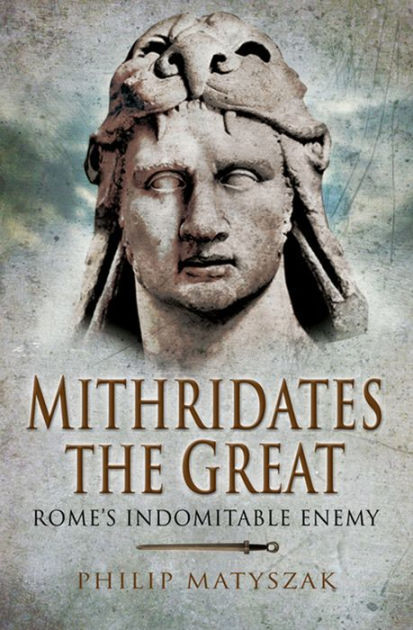
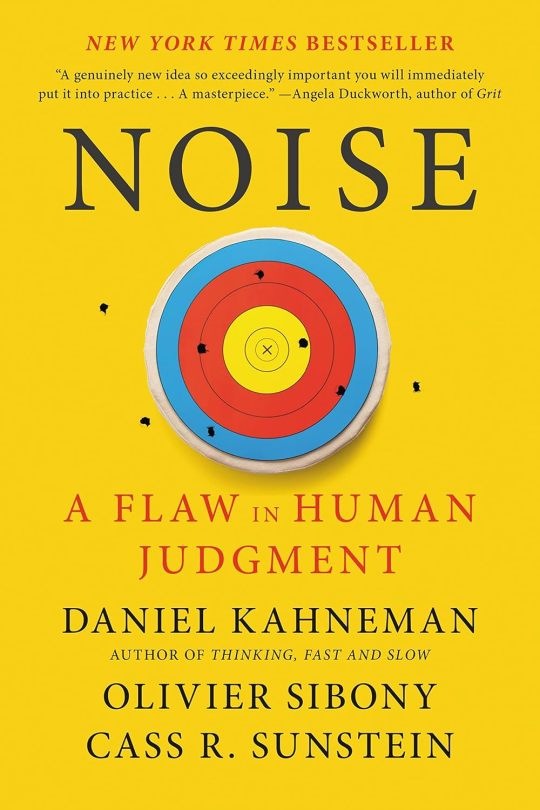
Nonfiction books that I read in the second half of 2023, part 1 of 2
#books#nonfiction#history books#ancient history#anaximander#carlo rovelli#compton cowboys#walter thompson-hernandez#mithridates the great#philip matyszak#noise a flaw in human judgement#daniel kahneman#olivier sibony#cass r. sunstein#nonfiction books
0 notes
Text
Big fan of Anaximander's fish theory tbh
1 note
·
View note
Text
Presocratics - Milesian physics (1)
Thales
In the first period, the Hellenic period which ended with the death of Alexander (323 BC), philosophy developed in Greek countries and successively in various centers: this succession corresponds to political vicissitudes. It was born in the 6th century in the Ionian country, in the maritime cities that were then very rich and trading. From 546, Greece was subjugated by the Persians, and…
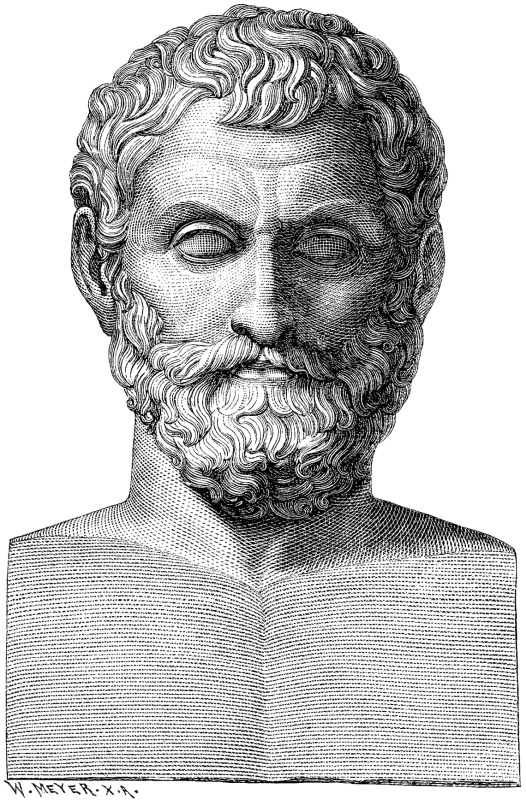
View On WordPress
0 notes
Text
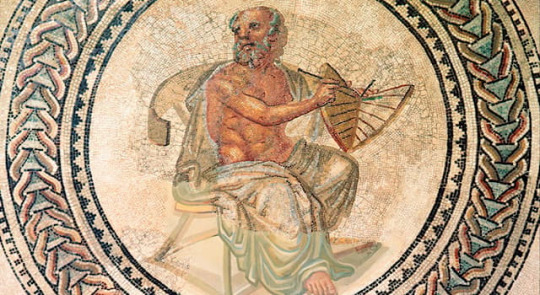
Who was the first person in recorded history to recognise that the earth exists as a solitary body?
Anaximander was born in the city of Miletus, located in present-day Turkey, around 610 BCE. He was a student of Thales, another renowned philosopher, and is considered one of the earliest known philosophers in Western history. Anaximander's ideas were groundbreaking and laid the foundation for many scientific and philosophical concepts that we still study today.
Anaximander became the first person in recorded history to recognise that the earth exists as a solitary body which does not need to rest on top of anything else. Fascinated by the structure of the earth, he created one of the first known maps, which depicted the known world as a circular shape surrounded by water. This map, known as the Anaximander map, was a significant advancement in cartography and influenced later mapmakers.
Another of Anaximander's most notable contributions was his theory of the "apeiron," which translates to "the boundless" or "the infinite." He believed that the universe was not created by any specific deity but rather emerged from an eternal, infinite substance. This concept challenged the prevailing belief in ancient Greece that the world was created by gods or divine beings. Anaximander's theory of the apeiron was a precursor to the modern scientific understanding of the universe's origins and the concept of the Big Bang.
1 note
·
View note
Text
so i just saw a post scrolling throught the historical shitposting tag and it was about like how would it be like talking to your favourite historical figures but. what about your least favourite. what would happend if you were to talk with your SWORN HISTORICAL ENEMY that you ABSOLUTELY DESPISE
#historical shitpost#anaximander#yes anaximander this is about you#i'd punch him#meme#humor#philosophy#presocrates#i hate that guy#same thing goes for any middle ages' pope
0 notes
Photo

Anaximander: And the Birth of Science
By Carlo Rovelli.
1 note
·
View note